Concern or empathy is not an idea but a natural biological event that occurs primarily between us and our relatives. It is time to recognize our inclinations biological design of institutional policies.

The rules of ethics are based on moral principles, but moral principles alone cannot dictate behavior. There are often several options for action, each with its own moral rationale. An ethical dilemma is created in a situation where a number of directions of action involve moral choice, which is sometimes contradictory, and any action can be accepted as appropriate in accordance with certain moral principles, but it is forced to ignore other principles. However, "real" ethical dilemmas are relatively rare, and the person usually deals with situations, issues, and problems involving ethics that are not necessarily dilemmas, but the appropriate moral judgment that most people involved in the issue, as well as professionals, leadership, and spirit, agree on.

A Life Story
Zell Kravinsky is an American entrepreneur who made headlines when he donated $ 45 million to charity, donated his kidney to a complete stranger and promised his extra kidney to any prominent cancer researcher who would need it. Together with his philosopher friend Peter Singer, Kravinsky preaches utilitarian philanthropy in a way that really shames the average citizen's sense of charity. He was stunned by the media resentment that arose when he wanted to donate his organs to strangers. I will not join here in resentment, and I will say that I support his self-sacrifice for the common good. But there is one important reservation before we call it a saint. What about Zell Kravinsky's family? For his part, he is noble to this level of angelic altruism, but do not his children need their father?Kravinsky is consistent with his utilitarian ideas and notes, "The needs of others are equal to my own needs." This, he says, "is the logical conclusion that stems from all the philosophical shades of equal rights." But while he has the right to reduce his value to a point on the egalitarian horizon, is he entitled to do so to his children? I claim that his family has a much greater hold on him than any stranger and that he must give his children generosity in a way that can not be measured by a utilitarian calculator. The love of a parent is unique and specific by nature, and incompatible with universal morality.
Kravinsky has a problem in his understanding of the love he produces in their completely paranoid theory (their unconscious greed) to explain his family's disappointment. I claim that this is a complete madness of the mind, which speaks of usefulness; A moral bureaucracy that does not recognize the obligations of the individual, which derive from family ties. Kravinsky does not recognize the triumph of love over fairness. From his official statements, it seems that Kravinsky is not aware of the favored nature of love, and he complains of a secret psychological plot against him. He warns the future saints, who, like him, will suffer severe resistance from dear family members. If you adopt the idealistic philosophy of equal concern to all, it warns, your family and your neighbor will block your way. This approach, his theory says, is the result of psychological repression of their selfish tendencies. Your family will irritate you for your infinite generosity toward strangers because it threatens to "shock their social project, which is the accumulation of goods for themselves."
Fortunately, his actions teach us more than his words, and I am relieved to discover some very human hypocrisy. Before he gave $ 45 million to foreigners, he saved $ 1 million in mutual funds for college studies for his children. Align power. That's exactly what he has to do. But it changes his argument significantly. It is really great to sing about the equality between the needs of all people after you have made your home. Kravinsky would never have to choose between the welfare of his children and the well-being of strangers. But for the rest of the people, such choices are not an imaginary risk. Melodramatic as it may be, Kravinsky symbolizes a tin many of us fall into when we try to navigate moral areas. One of the basic assumptions of Western liberalism is that it is possible, with the appropriate effort and dedication, to bring our concern to ever-widening circles until we envelop the entire human race in our moral embrace. If not for our predatory predispositions, we might have been more like Jesus or Kravinsky. However, I do not think the worry is something that can become universal.

The Ethics Of Nature
We operate out of an extreme misunderstanding about the sources of moral concern, that is, feelings. And emotions are adaptive products limited by biology.All mammals are equipped with adaptive instincts such as "fight or run away," but these are earlier brain systems, mainly in the brain stem. On these reptiles, systems are the emotional circuits of the limbic system. Brain scientists who deal with emotions have identified seven major emotional systems common to mammals. Each of these circles has unique paths in the brain. Each uses certain neurotransmitters and hormones and leads to certain behaviors that are characteristic of mammals.
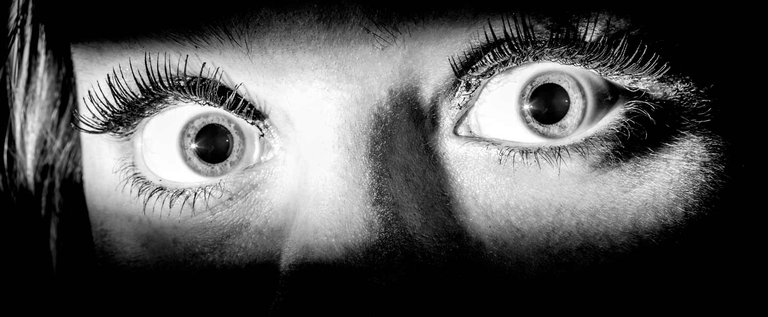
Image Credit
Fear, for example, has nerve wiring from the amygdala, passing through the hypothalamus, into the central gray matter, descending to the brain stem and out through the spine. This system produces a behavior of stagnation, an expression of distress in the voice (for example, whistles and screams), movements of flight and flight, crows and kicks or other defensive use of the limbs. Natural selection has installed this operating system in most vertebrates. She helped them survive in a hostile world.
Just as fear and desire have brain-based neural circuits, so does the care and care of mammals. Unlike other vertebrates, mammals care for and care for their family members, including young people. As primates, we share important brain mechanisms. Mammalian mothers have a unique neural circuit that passes from the hypothalamus, through the Stria terminalis, to the Ventral tegmental area, where the neural conductor oxytocin moves. The cycle of the mind's concern is so necessary for motherhood that damage to it destroys the maternal emotions and behaviors.
We have known the phenomenon of Imprinting for many years. Behavioral researchers, in their work with animals, successfully describe and maneuver for decades this simple process of establishing contact. Researchers are able to make young birds, for example, connect with the researchers themselves, or pills, and even with beer bottles. This is because the "window" for creating this relationship opens immediately after birth and closes quickly, so the closest thing is done, "mother". Mammals have similar, though more sophisticated, mechanisms to strengthen the bond between parents and their children.
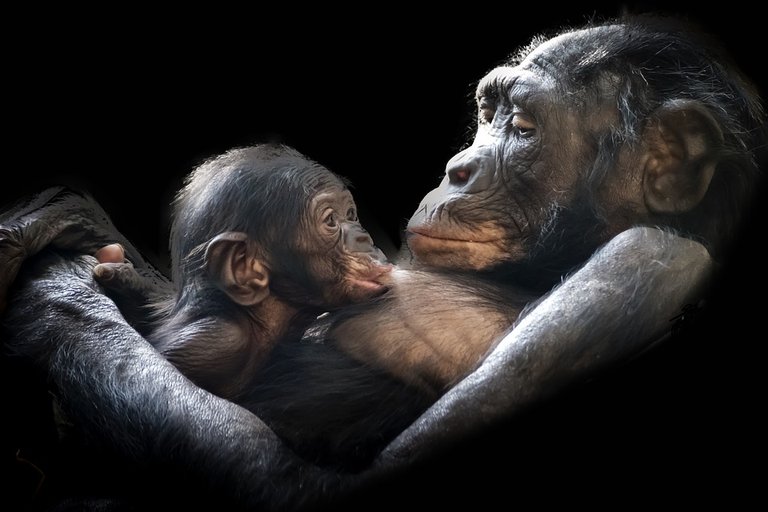
Image Credit
Making contact between a mother and her baby is a fundamental ability for any animal born in a hostile environment. Animals used as prey, especially herd animals, are born with extraordinary physical adaptability. They can walk and even run within minutes of birth. This mobility is important in a world full of carnivores, but it places them at greater risk of possible separation from their mother. Therefore, it is not surprising that herd animals have a very small window of opportunity to identify and associate with their mother. The failure to lock on a mother (for each species of mammals) usually leads to the death of the offspring and the possible elimination of the parents' genetic lineage. And therefore the pressures exerted by natural selection to establish a parental bond are intense.
Nature does not look from the side and fingers that indeed will establish a connection, nor did he wait in this sense for the development of rationalization or cognition (for example, many animals excel in establishing parental contact, despite the lack of absolute wisdom). Alternatively, during the window of opportunity, internal chemical changes occur in the minds and bodies of parents and their offspring, connecting them in ways that can not be compared to other relationships.
Certain Neurotransmitters - oxytocin, painkillers such as endorphins and prolactin - are significantly higher in the last days of the mother's pregnancy. Oxytocin, sometimes called the "love hormone," regulates several aspects of maternal biology (facilitating contractions and lactation), but also plays a crucial role in fostering behavior. If we introduce these neuropeptides at high levels into a non-pregnant mammal, maternal behaviors will arise. Non-pregnant rat females received blood transfusions from females who only gave birth and immediately began to develop maternal behaviors (eg, building nests, collecting young rats that otherwise abandoned and clinging to provide heat). The same arousal of maternal behaviors in rat females other than mothers can be achieved by injecting oxytocin directly into the brain.
Parental contact with oxytocin is a process that takes time. Sheep have only an hour or two to establish a connection between their lamb. If the lamb is separated from his mother for two hours, the contact will not be established, and the mother will reject it. But the amazing thing is that after the contact window closes, scientists can reopen it for several hours by injecting oxytocin into the mother's brain. Once oxytocin again floods the system, the mother can lock on her offspring and start developing maternal behaviors. For chimpanzees, this system of concern is limited in scope.
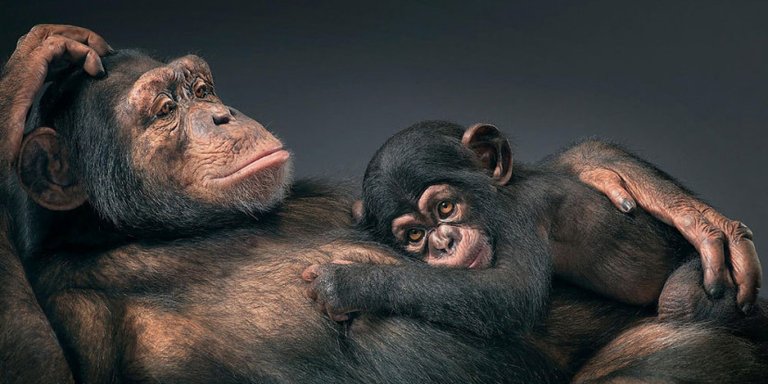
Image Credit
Mothers and babies communicate intensely for seven years, but there comes the end of strong family ties. As anthropologist Sarah Blaffer Hrdy observes, "In about half of more than three hundred species of primates, including the four apes and many of the more known species of Old World monkeys, such as the rhesus macaque and the savannah baboon, only mothers care for babies." In her book, Mothers, and Others, Hardy argues convincingly that human cooperation has been made possible by unique cultural changes in child rearing. Unlike chimpanzees, Homo erectus (meaning "upright man") children were grown and treated by other caregivers beyond the mother. Grandmothers, aunts, uncles, brothers, sisters, and fathers - all together - have contributed to the raising of children and have incorporated an expanded circle of empathic feelings.

The Human Case
The human offspring requires slightly more work - a whole team of therapists - that is so helpless for so long relative to other primates. An extraordinary chain of events leads to unique human childhood. Our ancestors of the Australopithecus species had a short childhood and a short life. They also had wider thighs. This means that their embryonic brains probably evolved more in the womb, as in chimpanzees, and a larger proportion of their behaviors was pre-wired. But in the days of Homo erectus, the thighs became narrower to facilitate walking on two legs, and brain development was postponed until after birth. That is to say, members of the biological genus, including us, are born prematurely, and our brain develops outside the womb. The result is a much greater window of opportunity to create a dependency on the baby, which requires enormous amounts of care and care from the parents and other caregivers.It also means, for reasons of neural plasticity, that our brains are still wired to absorb information from the environment, including the rich social environment. Our minds are slowly woven during infancy, and our interaction with the various therapists creates wider circles (beyond the mother) of emotional attachment. People establish such relationships with some therapists, and the window of communication remains open indefinitely after we become independent. This flexibility, based on emotions, gives people unique synergies, compared to other primates. Mothers have always been a model of care and care, but ancient human ancestors have developed impressive abilities to delay their food intake in order to provide nutrition to their families. It would not have happened without emotional evolution.
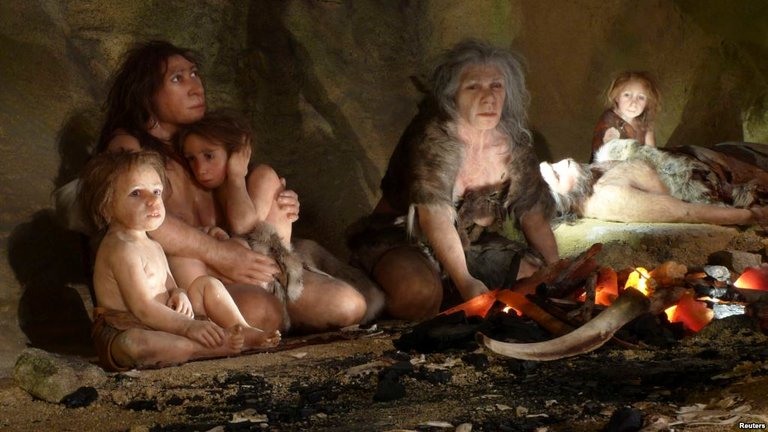
Image Credit
We know that the Neanderthal man treated relatives who were not from the immediate family because the evidence shows that he supported the patients and the elderly when they became dependent on him. Moreover, human funerals have already taken place in the Neanderthal days, which, at the very least, suggests an attachment beyond the maternal pattern. Once care and care become a cultural and social matter that is not limited to the mother, the possibility of a flexible, broad and unlimited connection opens. Compared to chimpanzees, human cultures have completely opened up their emotional care and care systems. Like our primate cousins, the way we cultivate social behaviors (such as touch and language) stimulates the oxytocin system and makes friendships.
To these friends, we give preference to foreigners. Humans are able to extend the circle of concern far beyond chimpanzees - although the chimpanzee is a strong competitor - but the expansion is still final.
Concern or empathy is not an idea, but a natural biological event; Activity and process. The sense of worry stems from a sensory perception, and soon swells and floods the brain and body with subjective emotions and behaviors (and oxytocin and opioids). Worry is like Sprint. It's not the kind of thing you can do all the time. The system will collapse quickly if we accelerate it every time we see someone needing help. the news report will exhaust us. The limbic system is unable to cope with the constant stimuli that we expect, mistakenly, to arise. This is because we are confused about the biology of empathy and assume that worry is like thought, something that passes through the brain effortlessly.
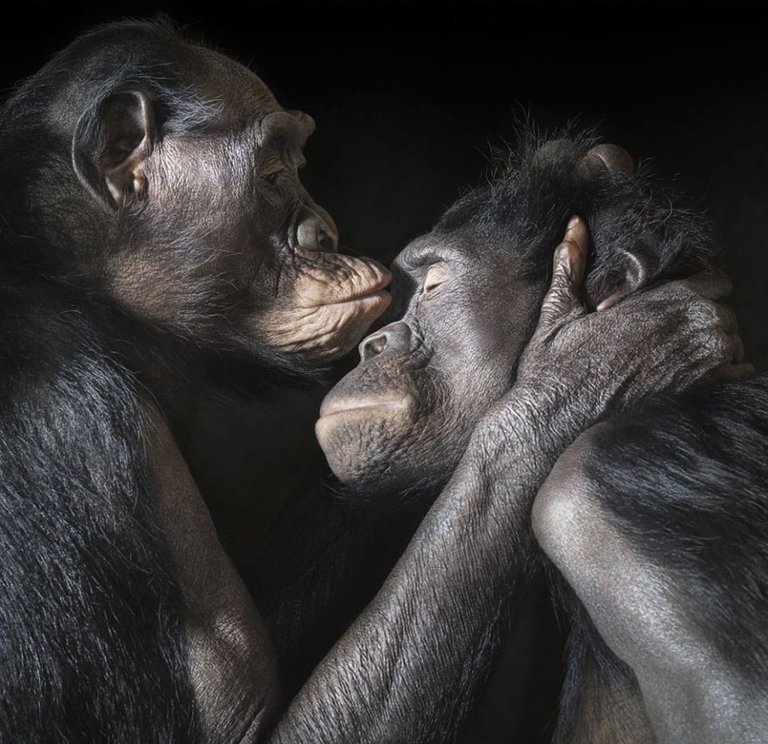
Image Credit
If worry is indeed a limited resource, it can not be used nonstop and cover the vast area called "strangers". Of course, when we see the suffering of strangers on the street or on television, the heartstrings vibrate naturally. Sympathy can spread when we see people suffering, which is a good thing. But this is far from our active devotion to our family. The tribes of our relatives and friends are "communities of affection," and this unique emotional connection with our loved ones brings great generosity and unselfish loyalty. There is a glass ceiling for our tribal emotional expansion, and this ceiling does not allow for universal empathy. And yet, even though we are biologically biased animals, people like Kravinsky, Singer, and other altruistic saints can ask if this is necessary. Maybe we should fight these impulses and take care of everyone as Kravinsky recommends. But the verb "needs" implies that we "can", and I argue that we can not. Is there room for human improvement? of course. But we must begin to return to the common good in the true context of the natural biological tendency. A universal morality or social contract based on an unrealistic picture of human nature will not help us through the stage of utopian fantasy.
Some of you will think this is pessimism, but it may still prove to be a positive insight into our future policy. Many social planners have turned to local community initiatives with the idea that micro-scale improvements are more sustainable and more effective. In my view, my pro-family strategy is a similar strategy. After all, what is more, local than the family?

Anti-Empathy In Action
Perhaps the biology of concern is not an obvious component of social policy. After all, easy leaps from biology to social policy have a dubious history (from social Darwinism to social sociology). But biology has changed significantly in the past two decades, and old determinism has given way to "plasticity" in all life sciences. It is less and less wise today to ignore biology in planning the mechanisms of health services, kindergartens and childcare, care for the elderly, and so on. If our therapeutic system is broken, then one way to correct it is to better adapt it to the inclinations of human nature.One important implication of my parental and bio-empathic perception is that the state can not successfully replace the family, but it can create conditions that will make it easier for families to take care of themselves. Public and private participation in payment for certain types of care is unavoidable, but some of the burdens can be transferred from direct payments to assistance services with working hours. "Family vacation" can become a broader concept that not only relates to maternity leave but also includes many other therapeutic scenarios.
Ideas such as single-parent employer-based income supplements, senior care vacations, reduced workloads, assistance to caregivers for disabled relatives, and even assistance to caregivers from the extended family may all be cheaper for the state and employers than the institutional alternatives. Such a policy may also help the bottom line of the private sector because a company cannot rely solely on maximizing shareholder profits.
Our natural family tendencies are the most powerful drivers of concern and care. In general, no one will work harder for our health and welfare than the family. There is no doubt that bad relations within institutions, especially from the hands of strangers, will fade away. Of course, love of a parent does not solve everything when doctors need it. Educated, properly trained professionals who can save our lives - like surgeons - are likely to be strangers. And it is possible that their very detachment is what will enable them to save us. The concepts I have presented here are not intended to replace these essential therapeutic aspects in dreams of grandma's remedies. Alternatively, I limit my comments to aspects of treatment that can be realistically performed by family members: child care, the elderly, special needs, drug addictions, minor injuries, and more.
There is no point in creating public and private systems that give citizens enough time to convert their energies into food and shelter, but not enough time to care for their children and parents. The transfer of family duties to a system of private and public services has become necessary in our employment reality, but this is a social error. The solution is not the moderate and melodramatic political call of the right for more personal responsibility, and it is not the call of the left-wing babysitter for more government involvement. We need to put a renewed emphasis on family therapy (a natural thing that nevertheless requires cultural reinforcement by education and habits) and the creation of an institutional policy that recognizes the true nature of people: not atomic individuals in the utilitarian utopia or utopia of enlightenment, but people rooted in dependent micro-communities Mutually. When my employer and the state remember that I am committed above all to my family (and not just an autonomous agent), they can formulate a policy that flaunts and does not fight these preconceived attachments.
The philosopher Bernard Williams called these deliberate and meaningful attachments, "infrastructure projects". Our limited circles of devotion to family and friends are a fundamental part of the great projects of our lives. If the company continues to ignore these "infrastructure projects" by outsourced outsourcing to foreign-funded cost-benefit institutions, the alienation we create will nurture us.





Until next time, thank you for visiting @nirgf
Feel free to leave a comment below!
בסופו של דבר מסתבר שכל המושג של מה מוסרי ומה לא מוסרי, אינו תוצר של פעילות אנושי שכלתנית (קאנט) או צווי אלוהי (דת) או כל פעילות נסיון אנושי לנסח עקרון פעולה מוסרי. בשורה התחתונה הכל אינסטינקטים הישרדותיים שטמונים בנו עמוק עמוק בד.נ.א.
טוב, לפחות עד שתגיע אופנה פסיכולוגיסטית-פילוסופית חדשה.
האופנה הפסיכולוגיסטית-פילוסופית, כמעט ולא משתנה,
רוב המטפלים מאמץ זרם בפסיכולוגיסטית-פילוסופית אשר הם "מתחברים" אליו,
בדרך כלל, מאמצים כמה זרמים שונים.
תודה רבה @summitbreeze
אתה פסיכולוגיסט או פילוסופיסט?
בסופו של דבר, כל תחום נתון להשפעה של טרנדים ואופנות. נכון שבמדע הטרנדים מתחלפים לעיתים רחוקות יותר מאשר השינויים בגובה המותניים במכנסי ג'ינס, אבל גם בו הטרנדים מתחלפים אחתצלכמה עשרות או מאות שנים. לראיה: פעם פסיכולוגיה היתה תחת פסיכיאטריה, אחרי זה היא הפכה למדעי החברה, היום יש נטיה לראות את הפסיכולוגיה כחלק ממדעי החיים והזרם של פסיכולוגיה אבולוציונית מאוד חזק.
זו דעתי מנקודת מבט פילוסופיסטית
The DSM (Diagnostic and Statistical Manual of Mental Disorders) Changing all the time just because of what you wrote.
Whoa... How many days did it took you to write this one? :D
It's quite informative though.. Keep adding value to Steemit! @nirgf
It took me two days, but finally came out something :)
Thank you very much dear friend
I appreciate your hard work brother... keep steeming. It usually takes me more than 10 days to write this kind of post lol :D I haven't posted in a while... An article is on the way ;)
What an amazingly detailed essay. It has given me much to consider. I have always enjoyed looking at the evolution/existence of the primate family model in reference to current familial models but have never drawn a connection between nature/nurture and potential societal benefits if instituting financial relief. Another thinker. Resteemed.
I think we did not get so far away from the monkeys-Yet :)
Most of us are still animals and not humans.
So comparison, not so hard
@shawnamawna much appreciated ;)
Very nice post. you have received 0.015 upvote from me. Follow me and resteem at steem/sbd 0.03
Thank you very much for your help and dear friend
Happy to see these features being used to make great content. Excited for crypto future, as well as steemit as a platform!
I'm still confused what I read but love is awesome trust bananas on this 🍌🍌🍌🍌😂😂😂😂.
Thank you, dear friend,
I love your comments and the bananas :)
Lol. 🍌🍌🍌🍌🍌🍌
This post has received a 2.38 % upvote from @buildawhale thanks to: @nirgf. Send at least 1 SBD to @buildawhale with a post link in the memo field for a portion of the next vote.
Steem WitnessTo support our daily curation initiative, please vote on my owner, @themarkymark, as a
This post has received gratitude of 2.29 % from @appreciator thanks to: @nirgf.